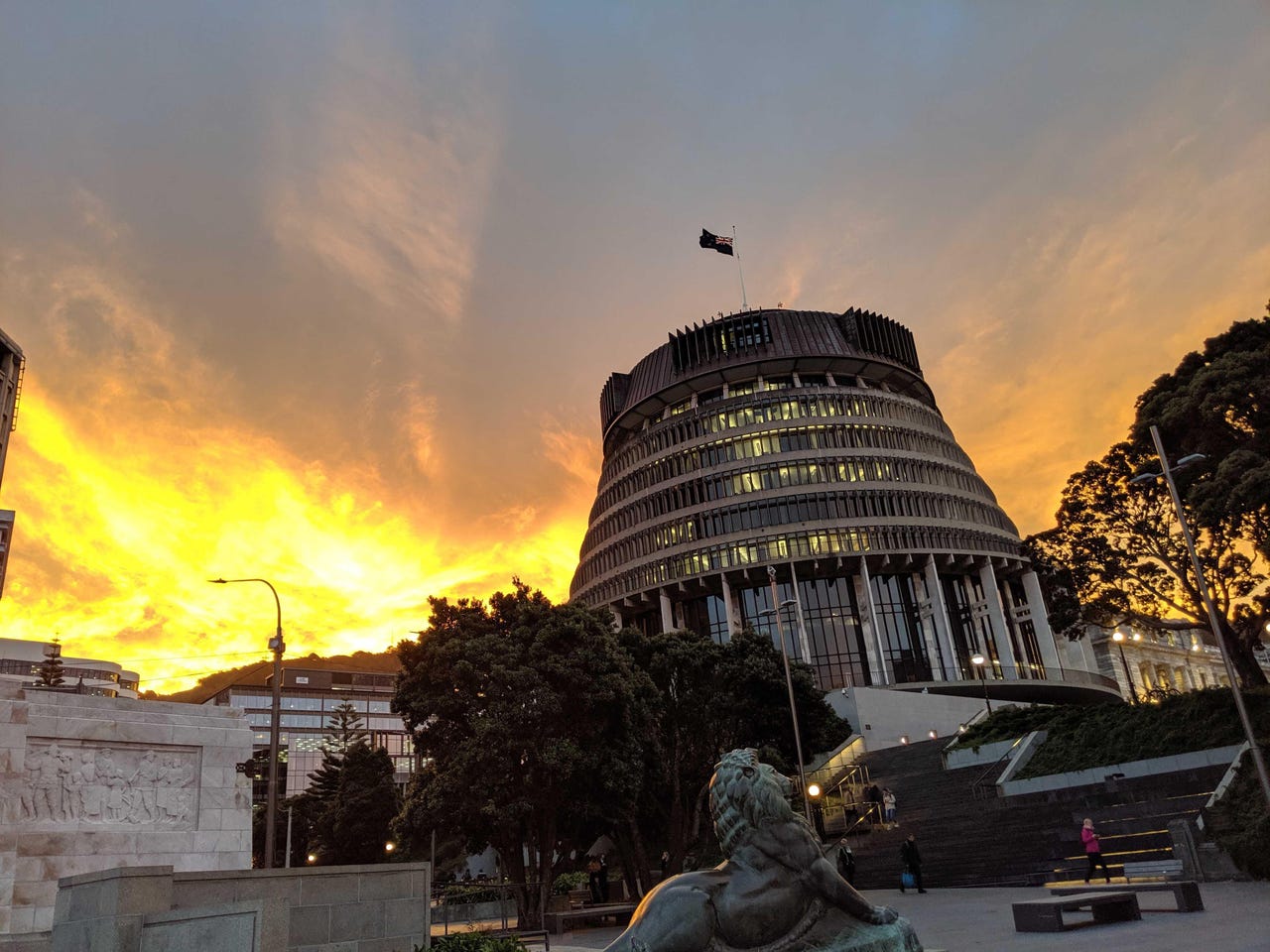Christchurch Call: USA missing from 26 member pledge to eliminate violent online content

New Zealand Beehive
New Zealand Prime Minister Jacinda Ardern has garnered the support of a handful of world leaders, tech companies, and organisations through the adoption of a pledge that seeks to eliminate terrorist and violent extremist content online, and stop the internet from being used as a tool for terrorists.
18 governments -- Australia, Canada, European Commission, France, Germany, Indonesia, India, Ireland, Italy, Japan, Jordan, Netherlands, New Zealand, Norway, Senegal, Spain, Sweden, and the United Kingdom -- and eight tech companies -- Amazon, Daily Motion, Facebook, Google, Microsoft, Qwant, Twitter, and YouTube -- on Wednesday in Paris jointly agreed to a set of commitments and ongoing collaboration to make that happen.
Ardern, alongside French President Emmanuel Macron, led the Christchurch Call, which is an action plan [PDF] that commits its signatories to a range of measures, including developing tools to prevent the upload of terrorist and violent extremist content; countering the roots of violent extremism; increasing transparency around the removal and detection of content; and reviewing how companies' algorithms direct users to violent extremist content.
"The March 15 attack was shocking in its use of social media as a tool in the act of terror and with the Christchurch Call we have taken a unique approach to solving this problem," Ardern said.
"We owe it to those affected by the attacks in Christchurch, and other attacks in cities and towns around the world where terrorism and violent extremism have struck, to undertake this work."
Ardern said the call acknowledges that government regulation alone will not solve the problem, saying that tech companies' creativity and technical know-how needs to be harnessed in order to find solutions, while ensuring internet freedoms are maintained and that the internet is protected as a "force for good".
"We need to build this new cyberspace, a free, open, and secure internet, which allows everyone to share, learn, innovate, but which also allows us to uphold our values, protect our citizen, and empower them," Macron added.
Speaking on CNN while in Paris, Ardern said in the aftermath of the attack there were a number of things that New Zealanders could do to respond, such as dealing with gun laws and looking into security and intelligence, but when it came to the way the attack was specifically designed to be broadcast and to go viral, responses to that needed a global solution.
"That was why we immediately got in contact with international counterparts ... to say, 'There is more work to be done here when it comes to stopping the proliferation of online and violent extremism'," she said, speaking with Christiane Amanpour about her action plan.
"It won't be the beginning and end, but I hope the start of preventing this kind of activity happening online again ... we are asking for cooperation and I think it's the least that can be offered in these circumstances."
Ardern told Amanpour that the proliferation of domestic regulation has been for good reason, but said most tend to focus on takedown periods and penalties, rather than finding solutions to getting in front, for example, of a live-stream.
"I've spoken to Mark Zuckerberg directly, twice now, and actually we've had good ongoing engagement with Facebook and the last time I spoke to him a matter of days ago, he did give Facebook's support to this call to action," she added.
"Technology is moving quite quickly ... we need to work together. That's why this call to action is not just about regulation, but instead about bringing companies to the table to say you have a role too and we have expectations of you."
A video of the terror attack in Christchurch was viewed around 4,000 times on Facebook and took 29 minutes before it was finally reported, Facebook said previously.
Despite its removal, approximately 1.5 million copies of the video sprung up on the network in the first 24 hours after the attack. However, only approximately 300,000 copies were published as over 1.2 million videos were blocked at upload.
Over on YouTube, a copy of the video was uploaded once every second during the first 24 hours following the terrorist attack.
"Those tech companies, I do not for a moment believe they wanted to see their platforms used for such a vile, heinous act, but I don't think it's enough for us to say, well in accepting that we all want an open and a free and secure internet that we have to accept that these kinds of activities will happen as a by-product -- we don't have to accept that, but we do have to put our minds collectively to the solution," Ardern said.
"I'm not willing to sit back and say it can't be done."
Ardern said she will work alongside others signed up to the Christchurch Call to bring more partners on board, and develop a range of practical initiatives to ensure the pledge is delivered.
The United States will not be joining the agreement, however, saying it was "not currently in a position to join the endorsement".
"We continue to be proactive in our efforts to counter terrorist content online while also continuing to respect freedom of expression and freedom of the press," the White House said. "Further, we maintain that the best tool to defeat terrorist speech is productive speech, and thus we emphasise the importance of promoting credible, alternative narratives as the primary means by which we can defeat terrorist messaging."
READ MORE
- Facebook Live to be restricted following Christchurch attack
- NZ Privacy Commissioner labels Facebook as 'morally bankrupt pathological liars'
- Facebook has removed 1.5M videos of New Zealand mosque massacre (CNET)
- Microsoft's Brad Smith asks tech industry to do better following Christchurch attack
- Canberra 'underwhelmed' with Facebook's live-streaming defence
